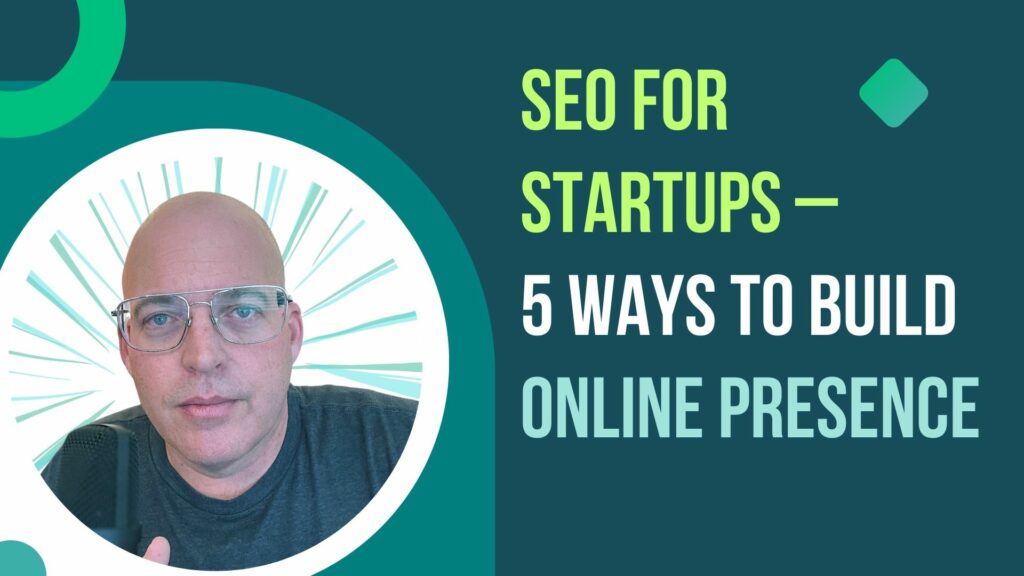SEO, Search Engine Optimization, is a linchpin in the digital success story of startups. In an era where online presence can make or break a business, the importance of SEO cannot be overstated. Startups, often operating on shoestring budgets and with limited resources, face a battle in gaining visibility.
SEO provides them a tool to level the playing field by enhancing their online visibility and attracting organic traffic. By optimizing their web content and adhering to best practices, startups can ensure their offerings reach the right audience.
Moreover, SEO is not a one-time endeavor but a continual process that adapts to changing market conditions and customer preferences.
SEO for startups is not merely an option but a strategic imperative. It empowers these fledgling ventures to connect with their target audience, and ultimately thrive in the fiercely competitive online arena.
By understanding and harnessing the power of SEO, startups can pave the way for long-term success. It ensures that those seeking solutions in their niche discover their products or services.
On-Page SEO Optimization
On-page SEO is the foundation upon which a startup’s digital presence is built. It holds immense significance because it directly influences how search engines understand and rank a website’s content. Key on-page SEO elements include optimizing titles, meta descriptions, and content, fine-tuning HTML tags, and optimizing images.
These factors determine whether a startup’s web pages will rank higher in results pages, increasing the chances of attracting organic traffic and potential customers.
To excel in on-page SEO, startups should focus on crafting compelling and keyword-rich titles and meta descriptions that accurately represent the content and entice users to click through. Moreover, optimizing the actual content by incorporating relevant keywords, headers, and high-quality multimedia elements can boost a page’s visibility and user engagement. Additionally, startups should ensure their websites are mobile-friendly, as Google prioritizes mobile-responsive sites.
By adhering to these on-page SEO best practices and regularly updating their content, startups can improve search engine rankings and provide a satisfying user experience, ultimately driving growth.

Quality Content Creation
Quality content is the cornerstone of effective SEO, and startups can’t afford to underestimate its role. It serves as the bridge that connects businesses with their target audience, making it a pivotal element in building online presence.
Well-crafted content not only attracts visitors but also keeps them engaged, increases dwell time on a website, and reduces bounce rates, all of which positively impact search engine rankings.
Startups can create valuable and engaging content by understanding their target audience’s needs, pain points, and interests. Tailoring content to address these factors establishes trust and positions the startup as an authority in its niche. Furthermore, conducting thorough keyword research is essential in content creation. By identifying relevant keywords with search volume and low competition, startups can strategically integrate them into their content, ensuring it ranks well in search engine results.
Effective content creation goes beyond words; it includes visual elements like images, infographics, and videos that enhance user experience and convey information in diverse formats, catering to different learning styles and preferences. In essence, quality content drives successful SEO campaigns, fostering organic traffic growth and establishing a startup’s credibility in the digital realm.
Link Building Strategies
Backlinks are a vital currency in the world of SEO. They hold immense importance because they act as endorsements from other websites, signaling to search engines that a website’s content is valuable and authoritative. For startups aiming to build their online presence, understanding and harnessing the power of backlinks is paramount.
Start by recognizing that backlinks are essentially votes of confidence in a website’s content. The more high-quality backlinks a startup can acquire from reputable and relevant sources, the more search engines like Google are inclined to consider its content authoritative.
Various link building strategies are at the disposal of startups, including guest posting on industry-relevant blogs, creating shareable and valuable content that naturally attracts backlinks, and outreach to authoritative websites for collaborations and partnerships. It’s not just about quantity; the significance lies in earning high-quality backlinks from sources with a strong domain authority.
Such backlinks hold more weight in search engine algorithms, boosting a startup’s visibility in SERPs and driving organic traffic. Therefore, cultivating a robust and diverse backlink profile is a pivotal aspect of SEO strategy, and startups should prioritize it in their digital marketing efforts.

Mobile Optimization
Mobile-friendliness is not just a suggestion but a fundamental necessity in SEO. In an age where a significant portion of internet traffic originates from mobile devices, ensuring that websites are mobile-friendly cannot be overstated. Mobile optimization is a critical piece of the puzzle for startups looking to bolster their online presence.
The significance of mobile-friendliness in SEO lies in Google’s mobile-first indexing approach. This means that Google predominantly uses the mobile version of a website. Therefore, if a startup’s website isn’t optimized for mobile devices, it risks lower rankings in search engine results, potentially missing out on a substantial portion of its target audience.
To optimize their websites for mobile devices, startups should adopt responsive web design, ensuring that their site adapts seamlessly to various screen sizes and orientations. Moreover, they should prioritize faster loading times, as mobile users tend to veer away from slow-loading pages.
This can be achieved implementing techniques. In essence, mobile optimization is a non-negotiable aspect of modern SEO that startups must embrace to thrive in the digital landscape.
Local SEO for Startups
Local SEO is a strategic imperative for startups, especially those with a physical presence or those targeting local markets. Its relevance cannot be overstated, as it empowers startups to connect with potential customers in their immediate vicinity and drive foot traffic to their stores or visits to their websites.
Local SEO is all about ensuring that a startup’s online presence aligns with the geographic areas it serves. To optimize for local search, startups should first claim and optimize their Google My Business (GMB) listing. This is crucial because GMB listings appear prominently in local search results .
Startups should ensure their NAP (Name, Address, Phone number) information is accurate. Additionally, they should ask customers for reviews, as positive reviews improve visibility and build trust with potential customers.
Online reviews, in general, play a pivotal role in local SEO, as they can influence both rankings and consumers’ decisions. By actively managing their online reputation and engaging with customers, startups can leverage the power of local SEO to gain a competitive edge in their target markets and build a loyal customer base.
Navigating the SEO Landscape for Startup Success
As we traverse the multifaceted landscape of SEO strategies tailored for startups, it becomes evident that these techniques are the compass guiding emerging businesses toward digital prominence. From the meticulous art of on-page optimization to the craft of content creation, the orchestration of link building, the mastery of mobile-friendliness, and the conquest of local SEO, these strategies hold the promise of not merely elevating search engine rankings but also nurturing trust and engagement with the coveted audience. Their brand stands tall in the ever-shifting online landscape.

Frequently Asked Questions
Can Startups Rely Solely on Paid Advertising, or is SEO Essential for Online Success?
While paid advertising can provide immediate visibility, startups should not rely solely on it. SEO plays a pivotal role in establishing a long-term, sustainable online presence. It helps attract organic traffic and reduces the dependency on paid ads.
How Frequently Should Startups Update their Website Content for SEO Purposes?
There’s no fixed timeframe for content updates, but regular updates can benefit SEO. Startups should aim to provide fresh and relevant content. Updates can range from weekly blog posts to monthly updates or more extended revisions of core website content.
Are There Any Free Tools or Resources for Startups to Improve their SEO Efforts?
Yes, several free SEO tools and resources can assist startups in improving their SEO efforts. Tools like Google Analytics, Google Search Console, and Google Keyword Planner provide valuable insights. Additionally, online SEO forums, blogs, and YouTube tutorials offer helpful guidance and tips.
How Can Startups Measure SEO Strategies?
Startups can measure the effectiveness of their SEO strategies by tracking key performance indicators. Utilizing web analytics tools and setting clear goals will help assess the impact of SEO efforts and make necessary adjustments








